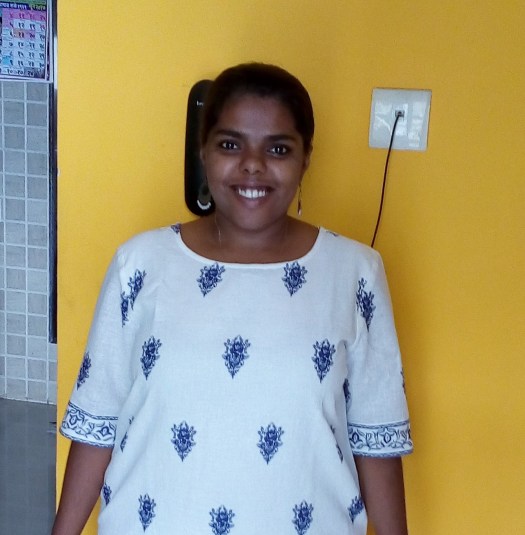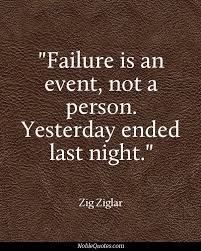We are adoptive parents. We adopted a baby girl in 1993 from Vatsalya, an agency in Kanjur. My daughter Rashmi recently turned 25 years. She is a Textile Designer working in Raymonds. And she is now poised to go to London College of Arts for further studies.
Recently as a part of my HR consultancy work I was approached to help set up comp structure, job grades, policy manuals, org chart etc. When I came to know the NGO who needs that support is Vatsalya, I told them I will be privileged to work for them and will do so au gratis: as Rashmi’s smiles for past 25 years have put me in a debt to Vatsalya which I can never repay.
Life has come a full circle: and I am back in Vatsalya after 25 years. That led to some long drives down memory lane, looking at old papers and photos. One of the things I came across was a letter we had written to a known couple who were prospective adoptive parents. Their questions were:
- why did we adopt?
- why a girl?
The old letter Rashmi…Ours – by choice! I had written still rings true. And I reproduce it here as my next blog.
Be forewarned this is longer than my normal 1000 words limit. But I earnestly exhort you to read it fully. This would give you some fresh insights into parenthood – be it natural, like yours or adoptive, like ours.
QUOTE
Our decision to adopt a child was necessitated by our need to become parents, to be called Baba & Aai, to be loved and depended upon. Having completed 12 years of marriage, we knew we would never become natural parents. Initial period of marriage began with a positive choice not to go in for parenthood very early. When we started feeling the need to call someone our very own, parenthood eluded us. Normal round of doctors – allopathic, ayurvedic and homeopathic – did not help. Neither of us were interested in faith-cures and religious solutions. Some tension did mount.
Every new doctor, every new suggestion added to tension. Will this work? Somewhere down the road, we decided not to try any longer. There was the occasional snide remark, the purposeful probing question. But both of us had reconciled enough with our state to not care. Being self-content and not overtly social must have helped us. During this period the idea of adoption took seed.
Vinita had worked in an adoption center. So the concept was not alien. We began to discuss it with one another off & on. The driving force was a shared view – we want a baby. The main question was – were we prepared? were we willing to change our life-style? were we ready to abnegate our concerns and our personalities? would be be able to adjust? could we take the responsibility? were we prepared?
This phase dragged on for quite a while. Both of us are strong willed, with firm views, not very compromising on personal matters. Hence these discussions were held again & again. At no stage did the question of societal acceptance bother us. Why should it? Why care for others? It was to be our own decision. We were to make it work. How much time do we spend with others? Are we truly ourselves in company? The inner self is bared to so very few that we both were sure that how “others will react” was not worth worrying about.We should do it if we want it. What others feel is not really relevant in such an important matter.
The only others we were both worried about were our parents. Their acceptance of the child was important. Social legitimacy would stop there. If they accepted the child as a part of the family – we would be very happy. For ourselves. But more for the child. We concluded that only the grandparents were important. Cousins, brothers, sisters, uncles, nephews, aunties, etc should also accept the child. But if they don’t we will love the child more and make up the loss/gap. How much time do all other relatives spend with us anyway? The apriori, predominant position was of grandparents.


So we decided that they would be the only people with whom we would discuss. Share. All others we would only inform. Their opinion would not concern us overly. Our parents, individually, we did talk to. And we did not get any major objection. No: what are you doing? how can you think like this? Only there was : why don’t you wait some more? try some more? Politely we said no. And, with strength morally doubled, went on ahead.
During this period we had found out that 10% of couples are childless. We were far from alone. Now came the question – girl or boy? Unanimously the choice was a girl. What are girls made of? Sugar and spice and all that is nice. Boys? Nails and frogs! Both of us were convinced that girls are far more affectionate and giving of their own selves. Our view. Maybe right, maybe wrong. Why should we adopt a boy? To carry one’s name? What is that? carry it where? After one is no more, does it matter? And who guarantees how that name will be carried on? Polished or tarnished? Who can say? Did my parents conceive me with the express desire to carry on their name? I don’t think so. I happened. Whether I polish or tarnish their name is a matter of chance. Did they really plan it all? Do they have control?
Children, beyond an age, will be independent. They will do as they damn well please. If you like it, good for you. If you don’t, well… How many “own” children have lived their life only for their parents? What lineage, what name do they care to carry forward? So why should we think that the adopted child will be any different? We can well imagine that that child too could turn out an iconoclast, a misanthrope, what-have-you. But is a natural child any guarantee against this? a big question mark, best left to unravel itself.
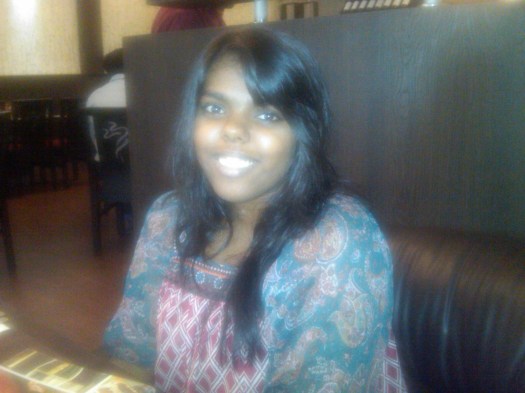
So the conclusion was boys are nothing special, but girls surely are. And what we were doing, let us not forget, was purely for our own selves. To fulfill our own need. Our desire. So why expect any return? Give the child the best possible for you. And that should include the freedom to think. The freedom to spurn you. The freedom to spite you- if she feels you have stolen her true heirloom. Whatever it might have been. Have we all not thought, as children, that actually these people – who claim to be my Pa & Ma – are not really my Mother & Father. My parents are really Kings and Queens who will come one day and rescue me from all the misery that these normal, average people are putting me through. By adopting a child are you doing any favour? Are you going to deny the child the right to despise you? We both were clear, we are doing what we are doing, for ourselves. In no way can we abridge the rights of the child. And if the child grown up to hate us for what we did- we must accept it. Que Sera Sera.
So why adopt at all? Because we have too much and we want to share. We have a need to hold a tiny being and call it our own. Because we feel we will get a lot of joy from that small bundle. Because social consciousness demands a return price for all all that we have, and asks for the right of all who do not have. Can we not begin with a small, infinitesimal impact?
Vinita and I were not born in one house. If we could decide to come together and share with each other, why not one more in the house with whom we can share? And so we went out and chose. Chose a sweet, innocent child. Rashmi. A ray. A ray of happiness. A ray of joy. A ray of light. A small bundle of love. The greatest gift we have given to each other. Ever. Forever.
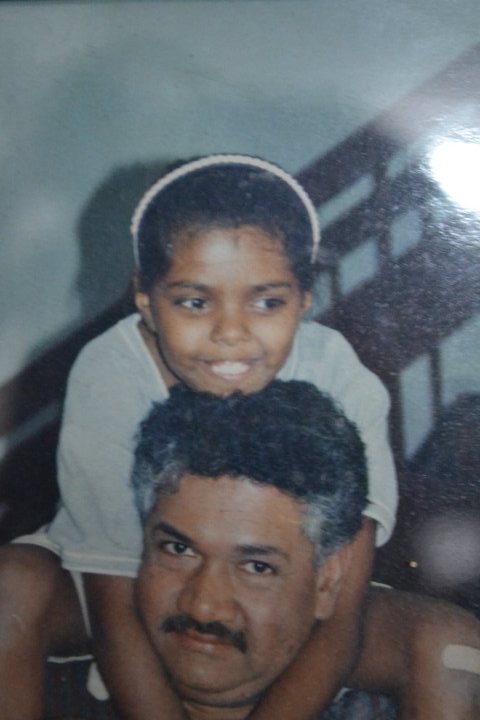
She will of course have to be told that she is adopted. All recent literature recommends that. Told at a time when she can take it. Very, very difficult to decide. But we will face it when it comes. But we will tell her. Tell her she was not born from Vinita’s womb, but she is our own. Tell her we have tried to give her what we could. Tell her to forgive us for what we could not. Tell her she is free. Free to continue to stay with us if she wants. Or leave , if she feels that is her path of happiness. But above all, tell her we wanted her. Only her. So we chose her. Only her. Tell her that we love her very much. Tell her of our need for her. Tell her she is very special. Very dear. Very very close to her. Tell her we would like her to love us back. If she wants. And we pray she wants us. As much as we want her.
Society at large still may not understand. Either our need. Or our decision. Some people do come and ask questions. Questions like: what will happen to her in school? Will other children torture her? Our answer is : we hope not. But children may taunt. We hope our love for her will give Rashmi the confidence to say: I am possibly loved far more than any one of you are. Questions like what will happen at the time of her marriage? our answer: Have we jeopardized her fate? Have we reduced her chances? Have we created complications for her? We are sure we have not harmed her interests in any way. And as a free independent being, she is sure to have a fate and a will of her own. Who are we to interfere with either her will or her fate? We are just beggars of her affection. Happy to receive, if she wills it. And adjust we must, if she wills it not. Life is larger than all 3 of us. But for us, she is all.
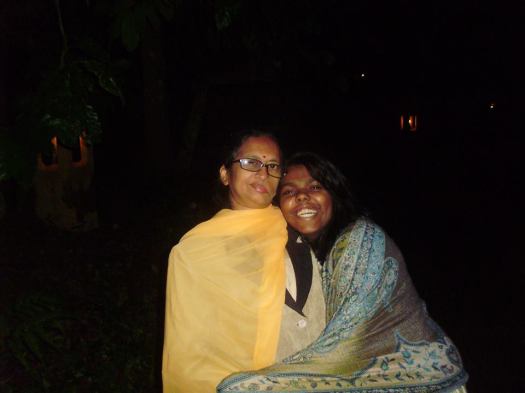
Legally we are her parents. But legality? what is it? Emotions are far more important. And in emotions we are trying our level best to give her everything. Everything we can. That may not be much. But it is all we have.
Somerset Maugham had said that life is such a curious game that if you demand too much from it, you normally get it. We hope we are able to give Rashmi that confidence to demand and get whatever she wants from life. We are only incidental in providing her with a base. But she is all. She is important. And she needs to understand that she needs to only demand, and life will run forward to give it to her.. That is our hope for her. And our only prayer. For her. Amen.
UNQOUTE
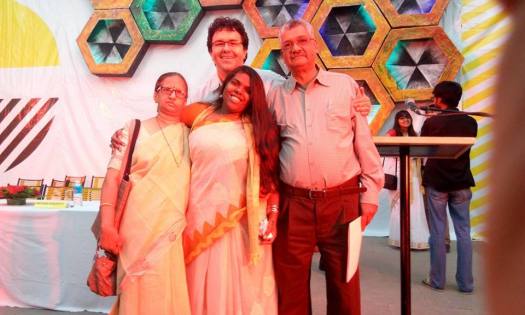
As I read all that I had written 25 years ago: I feel good that we have done our part and Rashmi has truly flowered as an independent, confident woman of the world. Our decision to adopt 25 years ago felt right. And even now it feels right. Rashmi has proven true to her name: a ray of sunshine, full of promise and potential.
Bon Voyage Rashmi: continue to learn & grown in the new environs of London : vikibaba
